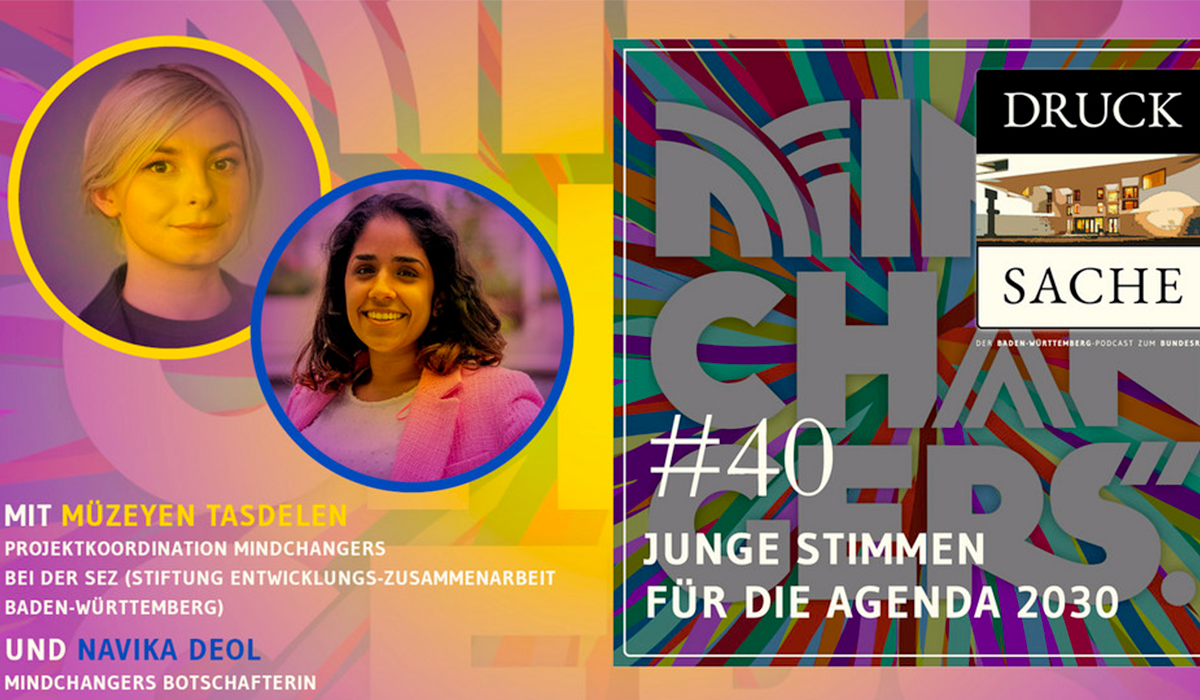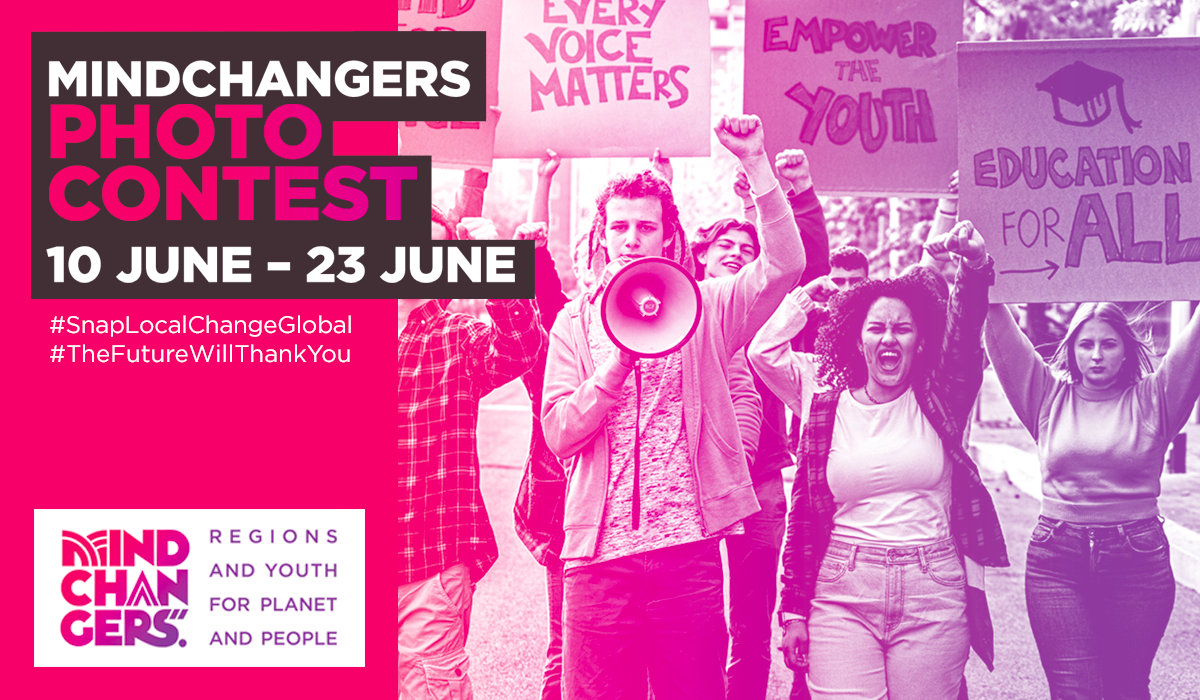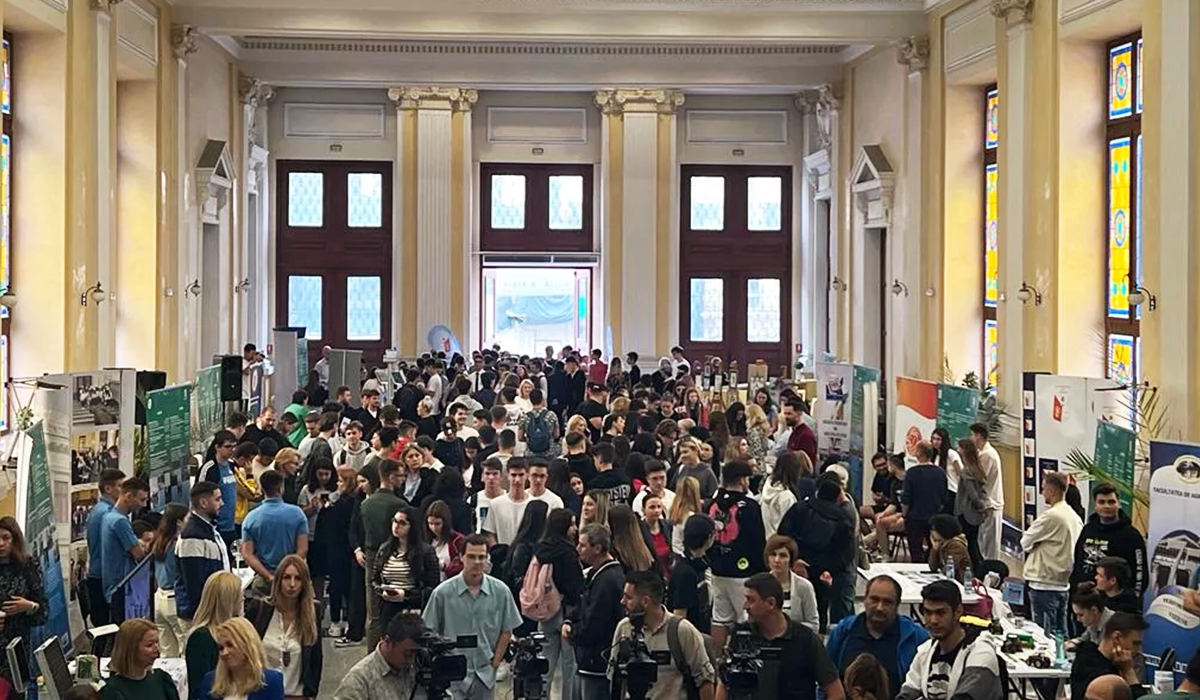Müzeyen Tasdelen, project coordinator of Mindchangers at SEZ, and Navika Deol, ambassador of Mindchangers, as guests on the podcast DRUCK SACHE.
In episode #40 “Young voices for the 2030 Agenda” of the DRUCK SACHE podcast, Müzeyen Tasdelen, Mindchangers project coordinator at SEZ, and Navika Deol, Mindchangers ambassador, talked to host State Secretary Rudi Hoogvliet about their involvement in the Mindchangers campaign.
The episode focuses on the barriers and challenges faced by young people who engage in initiatives, participations and projects in order to realize the goals of the Agenda 20230. The question of the extent to which European decision-makers enable the inclusion of young migrants in the long term was also discussed. Müzeyen Tasdelen and Navika Deol also provide insights into the structures of Mindchangers, their areas of responsibility and their personal experiences in relation to their voluntary work.
“With the 2030 Agenda, the global community has set itself 17 goals for socially, economically and environmentally sustainable development. These include, for example, the goals for high-quality education or affordable and clean energy, but also the goal of creating “partnerships to achieve these goals”. One form to promote such partnerships is Mindchangers,” says Rudi Hoogvliet in the 40th episode of DRUCK SACHE.
Breaking down barriers to youth engagement
“Cooperation with partner organizations all over the world is also key, as is the understanding […] that everything is one big cogwheel that interlocks and that these problems should not be considered individually,” emphasized Müzeyen Tasdelen. The Mindchangers projects are therefore active in Baden-Württemberg and the five partner regions of Piedmont, Auvergne-Rhône-Alpes, La Rioja, Federation Wallonie-Bruxelles and Dolj County. In this way, Mindchangers helps young people across Europe to form a community and become even more politically active. Therefore, one of the overarching goals of the Mindchangers campaign is to address barriers such as ignorance, indifference and lack of trust of political decision-makers towards young people and, at the same time, to break them down.
In addition to climate change, Navika Deol and Müzeyen Tasdelen consider insufficient integration and inclusion of young migrants in the European society to be a major problem. The expertise of these protagonists must be recognized and is crucial to find solutions to current challenges: “I don’t want my expertise to be denied just because I have a migratory background and I don’t like to quickly be pushed into the role of someone who represents a “great integration” […]. I’m not just my migration history, I’m more than that and I’m not doing what I do because I have a migratory background, but because I’m personally interested in the topic,” emphasizes Navika Deol.
Mindchangers uses information campaigns and events to highlight precisely these social misconceptions. The campaign enables change through awareness raising events and the constant exchange of information between those involved at a global level.
In the second part of the episode, State Secretary Rudi Hoogvliet looks at the following topics discussed in the Federal Council: First, the establishment of a new heating plan for decarbonization. Second, the amendments to the Energy Industry Act and the Soil Monitoring Act. The draft on the circular economy in the automotive sector, the European Union’s accession negotiations with Ukraine, Moldova and Bosnia and Herzegovina and the plan to amend the Aviation Security Fees Ordinance were also discussed.
Listen to the podcast in German.






